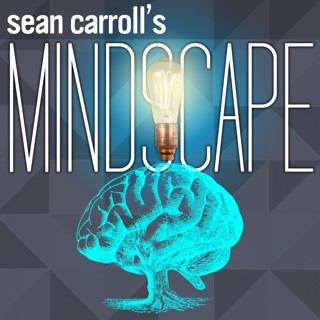
53 | Solo -- On Morality and Rationality
What does it mean to be a good person? To act ethically and morally in the world? In the old days we might appeal to the instructions we get from God, but a modern naturalist has to look elsewhere. To...
1 Heinä 20192h 5min

52 | Frank Lantz on the Logic and Emotion of Games
Games play an important, and arguably increasing, role in human life. We play games on our computers and our phones, watch other people compete in games, and occasionally break out the cards or the Mo...
24 Kesä 20191h 4min

51 | Anthony Aguirre on Cosmology, Zen, Entropy, and Information
Cosmologists have a standard set of puzzles they think about: the nature of dark matter and dark energy, whether there was a period of inflation, the evolution of structure, and so on. But there are a...
17 Kesä 20191h 31min

50 | Patricia Churchland on Conscience, Morality, and the Brain
It's fun to spend time thinking about how other people should behave, but fortunately we also have an inner voice that keeps offering opinions about how we should behave ourselves: our conscience. Whe...
10 Kesä 20191h 12min

49 | Nicholas Christakis on Humanity, Biology, and What Makes Us Good
It's easy to be cynical about humanity's present state and future prospects. But we have made it this far, and in some ways we're doing better than we used to be. Today's guest, Nicholas Christakis, i...
3 Kesä 20191h 54min

48 | Marq de Villiers on Hell and Damnation
If you're bad, we are taught, you go to Hell. Who in the world came up with that idea? Some will answer God, but for the purpose of today's podcast discussion we'll put that possibility aside and look...
27 Touko 20191h 11min

47 | Adam Rutherford on Humans, Animals, and Life in General
Most people in the modern world — and the vast majority of Mindscape listeners, I would imagine — agree that humans are part of the animal kingdom, and that all living animals evolved from a common an...
20 Touko 20191h 38min

46 | Kate Darling on Our Connections with Robots
Most of us have no trouble telling the difference between a robot and a living, feeling organism. Nevertheless, our brains often treat robots as if they were alive. We give them names, imagine that th...
13 Touko 20191h 6min













